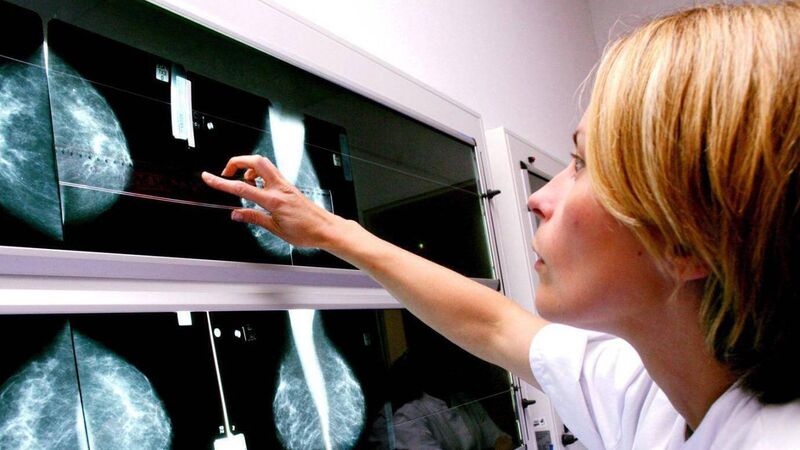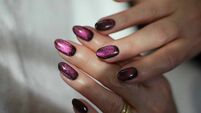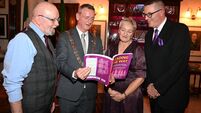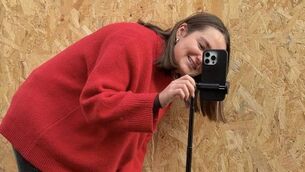Dr Michelle O'Driscoll: Importance of getting to know your breasts

Breast screening helps find cancer early, prior to any signs or symptoms being obvious.
In the region of 3,500 cases of breast cancer are diagnosed in Ireland each year. Dr Michelle O’Driscoll discusses the importance of being proactive about breast health.
There have been several stories online and examples in daily life recently of breast cancer unfortunately being diagnosed in younger women.
The statistics support this, reporting that 13% of cases occur under the age of 44, and 25% between the ages of 45 and 54.
Therefore, any belief that breast cancer doesn’t affect women before a certain age is false and unhelpful when it comes to recognising and acting on something that needs investigation.
Breast screening helps find cancer early, prior to any signs or symptoms being obvious. This happens via a mammogram, which is an x-ray of the breast.
It doesn’t detect 100% of cancers, but helps to lower your chance of cancer being missed.
This screening is offered from the age of 50, and every 2-3 years thereafter up until the age of 69. This screening targets those women at greater risk due to increased age.
A genetic predisposition to breast cancer should also be considered, with some women at higher risk due to family history – but this only accounts for 5-10% of cases, so a clear family history is far from full protection and shouldn’t lead to complacency.
Being familiar with how your breasts usually look and feel will make it much easier to spot any specific changes.
Checking your breasts is something that we should all build into our routine at least monthly. The phrase ‘feel on the first’ is promoted online as a helpful way to remember this – conduct a check of your breasts on the 1st of every month. The actual date doesn’t matter though, once you check regularly and have your own way of remembering to do this.
Before hopping in the shower, stand in front of the mirror face on and visually examine your breasts. Check that there’s no changes apparent. Raise your arms to check for any changes from this angle too. While we typically associate breast cancer with a lump, this visual examination of the breasts can identify any other signs, such as skin puckering, increase in size of one breast, one breast lower than the other, any change in glands, or any change/discharge from either nipple.
Next, you should thoroughly feel each breast by using the opposite hand. This might be easier to do in the shower, where the slipperiness of the water can help. Check from top to bottom and side to side of each breast, as well as in under the armpit to check the lymph nodes. Keep your fingers flat, and move them in a circular motion. Don’t expect a lump to jump out at you, use firm pressure so that you’ll be more likely to feel something if it’s there.
Apart from checking your breasts regularly, there are other things you can do to help identify breast cancer, or actions that you can take to be proactive in your breast health.
Make sure that your details are on the breast screening register, which can be done from the age of 48. Eat a balanced, whole-food diet where possible, limit alcohol, avoid smoking and include exercise in your routine, as well as managing your weight. Like all cancers, research indicates these factors can influence your body’s health and risk of cancer.
It is also thought that breastfeeding can provide some future protection due to the stabilising of oestrogen levels.
If you have any concerns at all about your breasts, make sure to contact your GP immediately. It can be tempting to wait it out or disregard any suspicions due to the busyness of life, or maybe even due to fear of next steps. But make sure to prioritise this. While most breast lumps are harmless and have an explanation, it’s vital to have the appropriate checks so that anything serious can be caught as early as possible. Rest assured that breast cancer care in Ireland is excellent, and if further steps are needed you’ll receive first class support and treatment, but getting into the care pathway early helps to ensure the best possible outcome.







 App?
App?


